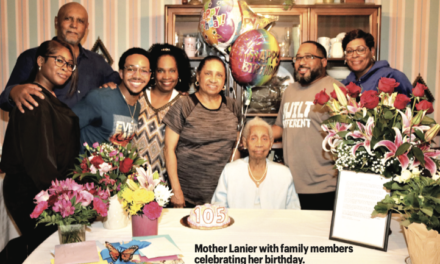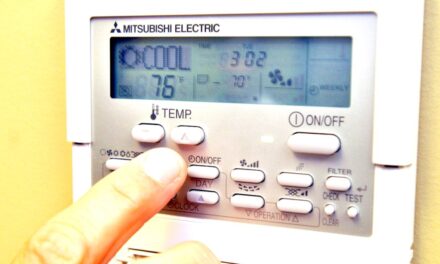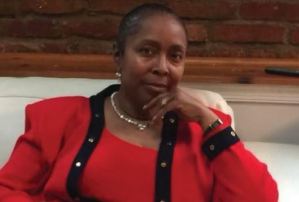By Mike Cason
Some cities in Alabama are planning to install safety devices at fire stations that will allow parents to securely and anonymously surrender infants into the custody of the state.
On June 1, the Alabama Legislature passed a bill expanding the state law allowing the surrender of infants. That law, in place since 2000, is intended to stop babies from being left in dumpsters and unsafe places. It allowed parents to legally surrender infants up to three days old at hospitals without being charged with abandonment.
The new law will expand that by allowing infants to be surrendered at fire stations that operate around-the-clock with emergency personnel. The new law authorizes Safe Haven Baby Boxes, secured portals in the exterior walls of fire stations, where infants can be placed and immediately retrieved by emergency workers inside. And the new law allows the surrender of infants up 45 days old, instead of the three day-limit.
The sponsor of the bill, Rep. Donna Givens, a Republican from Loxley and a first-year lawmaker, said she got the idea from a similar bill that passed this year in Mississippi. Givens’ bill, HB473, passed the House and Senate without a dissenting vote and was signed into law by Gov. Kay Ivey. It takes effect Sept. 1.
Kids to Love, a private foundation in Madison that gives a wide range of services to foster children, including homes, adoption placements, and education, worked with Givens on the legislation and will provide the first 10 Safe Haven Baby Boxes in Alabama through an anonymous donor.
Lee Marshall, founder and CEO of Kids to Love, said Mobile, Tuscaloosa, Madison, Gadsden and Scottsboro have committed to using the boxes. Foley Fire Chief Joey Darby said he wants to make one available in Baldwin County. Marshall said the goal for Kids to Love is for the 10 donated boxes to be placed strategically around the state.
“We wanted to give women another option to safely place their baby somewhere if they decided not to parent. And that’s really why we wanted to have the baby box legislation in Alabama,” Marshall said.
Givens said the new law will save lives, prevent tragic choices by young women who think they are unable to care for their babies, and make newborns available to couples who are eager to adopt.
“Number one and most important, saving baby’s lives,” Givens said. “Number two, it’s saving the mother from making the mistake of her life that she will regret for the rest of her life. And number three, it’s putting a baby in these loving couple’s arms that desperately wants a baby.”
Alabama is one of 17 states that have authorized the use of the boxes, created by Safe Haven Baby Boxes, Inc., which is based in Indiana. Nationally, there are 153 boxes in use. Thirty-two infants have been surrendered through the boxes since the first was installed in Indiana in 2016, according to Safe Haven Baby Boxes, Inc. The organization operates a 24-hour hotline for mothers in crisis,
Marshall said the expanded Alabama law and the availability of Safe Haven Boxes removes potential obstacles to the safe surrender of infants.
“The way that our current law was written was when someone, probably a mom, wanted to surrender a child, they had to physically walk into a hospital and hand that baby over to hospital officials,” Marshall said. “We just felt like that was a deterrent for women to be able to safely, successfully, but also with complete anonymity, to be able to do that. So many other states have put the baby box into place and they’re having great results. And so we just felt like it was time to give women in Alabama another choice.”
When a Safe Haven Baby Box is opened from the outside, an alarm alerts emergency workers inside the fire station. A second alarm sounds when an infant is placed in the box. A third alarm sounds when the box is closed. It automatically locks, preventing reopening from the outside.
The emergency staff will take the infant to a hospital for evaluation and notify the Alabama Department of Human Resources (DHR), which will take custody of the child. DHR will contact law enforcement to determine if the child has been reported missing. The child will be placed in foster care as a first step toward a permanent home.
DHR worked with Givens on the bill and supported it.
“Without a doubt, this bill will reduce the risk of harm to infants by giving parents more choices and more time to surrender newborns safely in times of crisis,” DHR Commissioner Nancy Buckner said. “Representative Givens has done a tremendous service for our youngest Alabamians by sponsoring this important legislation and carrying it across the finish line. We thank Representative Givens for her insight and passion for these vulnerable babies.”
Givens said she believes Alabama’s ban on abortions, which took effect when Roe v. Wade was overturned last year, will create more need for options for young women to safely surrender newborns. Givens said since she started working on the bill she read and heard stories that reinforced her belief that it can save lives, including one story about a baby who was surrendered less than an hour after birth.
“If you’re placing a 30-minute old baby in one of these boxes, this was a baby they never intended to keep for whatever reasons, no judgement there,” Givens said. “So this is a baby that would have ended up somewhere else that maybe would not have had a true success story. And that’s the whole purpose of these boxes is to allow a life to be saved, Alabama being a pro-life state, which I’m very thankful for.
“Being a pro-life state there needed to be a next step. We’re encouraging these mothers, don’t abort your baby, have your baby. So this 30-minute old baby that was placed in a box shows that these boxes are needed and are necessary. Because this perhaps could have been not a good ending to this story.”
Foley Fire Chief Joey Darby said he hopes to have a Safe Haven Baby Box installed at the city’s fire station just off Alabama 59, the busy highway to the state’s beaches. The station is near the South Baldwin Regional Medical Center. Foley said he will have to seek approval from the city council. But he said he has always considered the fire department a safe haven, and the new law creates another important way it can serve that purpose.
“We hope it’s something that never has to be used,” Darby said. “But in reality, we know that if it’s just that one case that makes the difference in a baby and eventually an adult’s life, we want to be that safe haven.”
Steven Millhouse, public information officer for Mobile Fire & Rescue, said the city has requested three of the 10 Safe Haven Baby Boxes. Millhouse said the department will pick the most strategic locations among the city’s 18 fire stations. He said the department is preparing new policies and procedures for paramedics and firefighters and will take advantage of training provided by Safe Haven Baby Boxes Inc.
Givens said there are many reasons why young women can be in a situation where they might consider surrendering their child. Examples, she said, include young women who are away at college, become pregnant, and do not want their parents to know. Another would be a young woman living in conditions that would be dangerous for an infant. Another would be women who are pregnant as the result of rape.
Increasing the window for allowing the surrender of infants from three days to 45 days is important, Givens said. For example, it will give women more time to consider their decision and determine whether they can provide a safe home.
“I only have one child and I can’t imagine having to go through the decision that some of these are making or feel led to make,” Givens said. “So I certainly do not want to judge anyone because I’ve not walked in their shoes.”
Givens said she knew some parents who surrender a newborn, even safely, will regret it.
“But maybe, on the other side, on the flip side of that is, they know it would be a bad environment, or not a safe environment, and so they’re making these decisions, and to me that’s a decision made out of love,” Givens said. “That they want the baby to have a better chance.”











